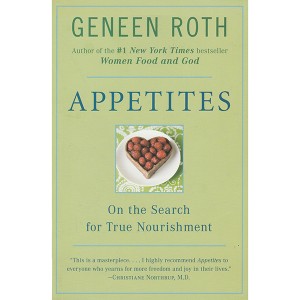People who have an Anxious ambivalent attachment style will tend to struggle to form strong lasting relationships. Many of my counselling clients feel a sense of shame that they have had lots of failed relationships. Let’s put aside the judgement here and work on understanding what this is all about.
While it can be natural to want to be in a relationship, some of us come to counselling because we feel so desperate that we truly believe we cannot survive without being in one. We are coming from a place of emotional emptiness, hunger and scarcity and a belief that ‘who I am is not enough’ and that my only chance of fulfilment lies outside myself. My only power lies in being able to work out how to get enough from people and things around me.
In one of Geneen’s workshops, one participant wrote:
‘In the cafeteria of life, I will never have a big enough tray. I will never get enough, I will always be hungry. I will always want. I will never have’.
Since the nature of deficiency it that nothing will ever be enough, no matter how much someone loves me, it doesn’t stick. To have a continual experience of being worthy, I must have a continual inflow of love. If I want to be full, and who I am is fundamentally empty, then I must compromise myself. I must lie, I must hide, and if I am fortunate enough to meet someone who fills the tray, I must not threaten him/her. Roth, G.(1996) P149.
In our desperation, we are prone to forming relationships with a succession of unsuitable partners. We also have high expectations of partners, expecting them to meet all the needs that our primary care givers didn’t. To pick up the cafeteria metaphor, rather than dealing with our own hunger and emptiness, we believe we can find a special person with all the right things on their tray to make up for all that is missing on ours.
In describing her relationship with her good friend Sara, Geneen Roth talks about her longing for her friend to be everything her emotionally neglectful parents weren’t. Referring to her childhood, she says the following:
I missed the experience of trust and respect. I missed the experience of value and joy. I missed the experience of compassion and love. Missing them made me feel deficient, and feeling deficient made me feel dependent on other people for the things I missed. But as my drama with Sara unfolded, I saw that she didn’t have them either. All this time, I thought she had the keys in her pocket. I thought she had a big enough tray and I equated different with bigger. I thought she could give me what she had, and then I would have enough. I never really saw her; I saw her only in relation to what I was missing and what she could give me.
Had I been able to see Sara, I would have understood that she was as busy filling her tray as I was filling mine. Our friendship was based on trades: I’ll give you my piece of apple pie if you give me your cheesecake, I’ll give you my chicken sandwich if you give me your salad. In the end, our trays and our lives were exactly the same size as when we began, I still feel needy and empty and so did she.
There is no such thing as having a happy childhood now because childhood depended on having big people around who could give us what we needed, and we cannot get back what we lost from anyone else. Even if we could, why would we want to? Their trays are as meagre as ours, no matter what they look like from our perspective. Roth, G.(1996) P152
Geneen tells an old Sufi story about Nasrudin the fool who loses his keys in the house. When a neighbour finds him searching for them by crawling around outside under a street light , he asks him why he is looking outside when he knows he has lost them in the house, Nasrudin replies; ‘Because the light is better here than in the house’.
As children with troubled parents, we could not know ourselves without reference to someone else. Constantly believing in and striving to find the perfect relationship blocks us from feeling whole because it keeps us looking outside, under the street lamp for our keys. To find the keys, we have to go in the house. To get ourselves back, we have to go back to ourselves. We find the keys by looking for them where we lost them.
Exploring and coming to terms with the past takes a great deal of courage and it can be hard to know where to start as it often involves discovering and facing up to a lot of blind spots. Sharing this experience and working alongside a counsellor can be helpful as counselling provides a safe supportive and confidential space to explore where your emotional discomfort lies and help you to consider how you can start to meet your own emotional needs.

